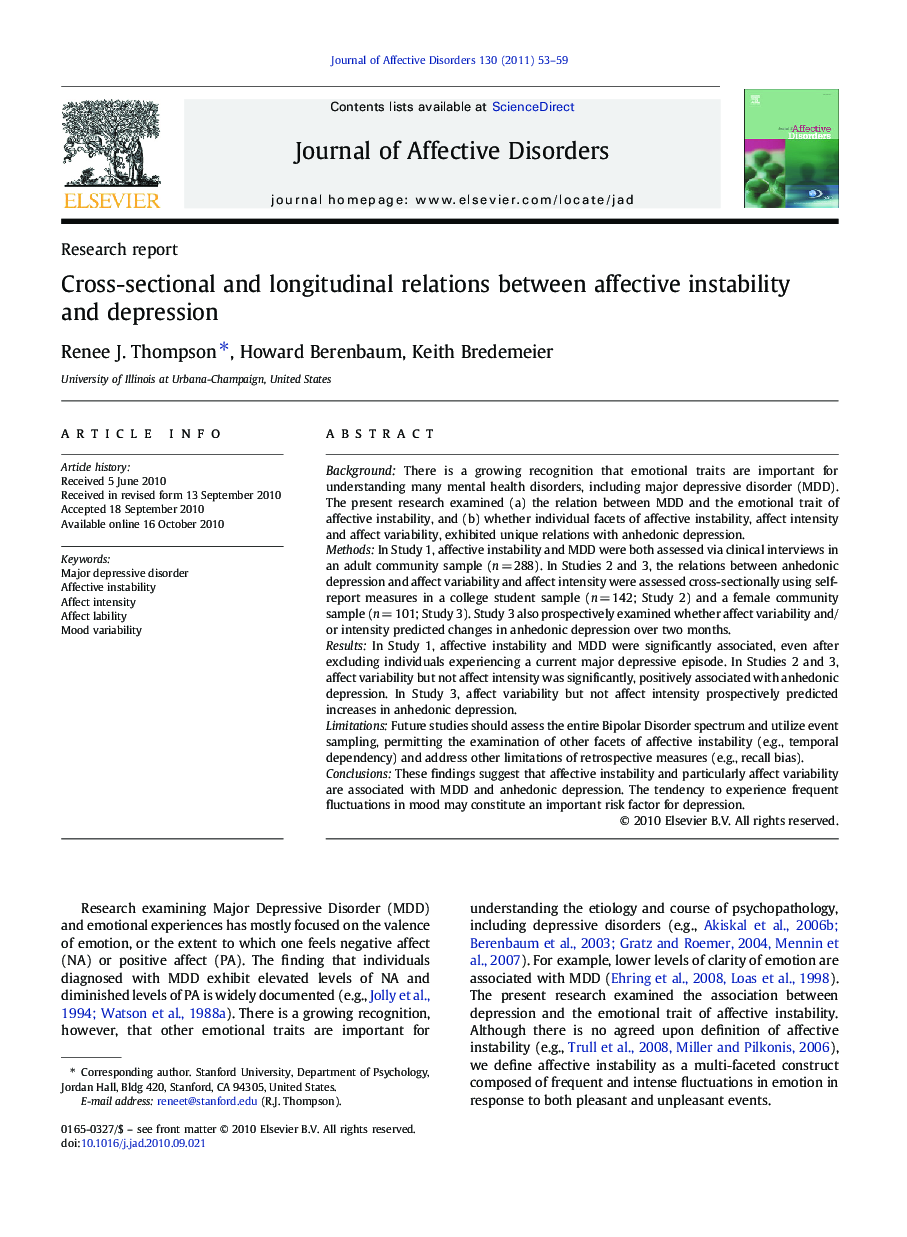| کد مقاله | کد نشریه | سال انتشار | مقاله انگلیسی | نسخه تمام متن |
|---|---|---|---|---|
| 6236176 | 1608190 | 2011 | 7 صفحه PDF | دانلود رایگان |

BackgroundThere is a growing recognition that emotional traits are important for understanding many mental health disorders, including major depressive disorder (MDD). The present research examined (a) the relation between MDD and the emotional trait of affective instability, and (b) whether individual facets of affective instability, affect intensity and affect variability, exhibited unique relations with anhedonic depression.MethodsIn Study 1, affective instability and MDD were both assessed via clinical interviews in an adult community sample (n = 288). In Studies 2 and 3, the relations between anhedonic depression and affect variability and affect intensity were assessed cross-sectionally using self-report measures in a college student sample (n = 142; Study 2) and a female community sample (n = 101; Study 3). Study 3 also prospectively examined whether affect variability and/or intensity predicted changes in anhedonic depression over two months.ResultsIn Study 1, affective instability and MDD were significantly associated, even after excluding individuals experiencing a current major depressive episode. In Studies 2 and 3, affect variability but not affect intensity was significantly, positively associated with anhedonic depression. In Study 3, affect variability but not affect intensity prospectively predicted increases in anhedonic depression.LimitationsFuture studies should assess the entire Bipolar Disorder spectrum and utilize event sampling, permitting the examination of other facets of affective instability (e.g., temporal dependency) and address other limitations of retrospective measures (e.g., recall bias).ConclusionsThese findings suggest that affective instability and particularly affect variability are associated with MDD and anhedonic depression. The tendency to experience frequent fluctuations in mood may constitute an important risk factor for depression.
Journal: Journal of Affective Disorders - Volume 130, Issues 1â2, April 2011, Pages 53-59